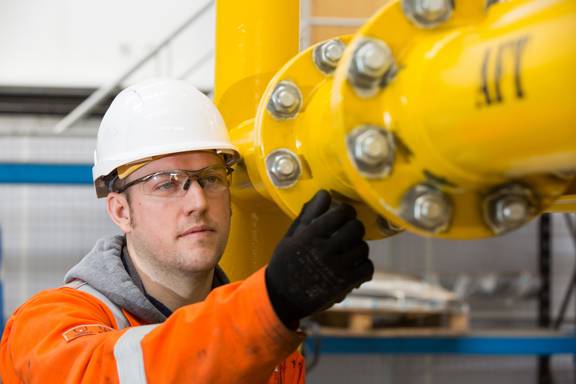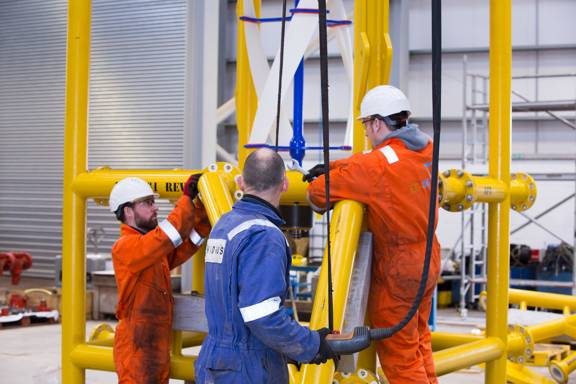
Hydrogen
- Business in Scotland
- Sustainable economy
- Cost of doing business in Scotland
- Innovation in Scotland
- Infrastructure and connectivity
- Expand and scale your business
-
Success stories
- UserTesting
- Smart Green Shipping
- Ace Aquatec
- Tachmed
- Rotech Subsea
- Invenergy
- HSBC
- Orbex
- Previse
- Logos Logistics
- Eurostampa
- Balmoral Comtec
- Spire
- Dean's of Huntly
- Outplay
- Masdar
- GSK
- AMD
- J.P. Morgan
- Renovite Technologies
- VeriCall
- Ashurst
- Ascensos
- Fraunhofer UK Research
- Barclays
- Channel Bakers
- Planet DDS
- Celestia
- Sunhope Packaging Machinery
- Fennex
- Sumitomo Electric Industries
- Financial and tax incentives
- People, skills and recruitment
-
Locations for your business
-
Commercial properties and land
- Inverness Campus
- Energy Transition Zone (ETZ)
- Prestwick: Scotland’s only Aerospace Enterprise Area
- Michelin Scotland Innovation Parc (MSIP)
- Grangemouth Chemical Science Park
- Arrol Gibb Innovation Campus (AGIC)
- Advanced Manufacturing Innovation District Scotland (AMIDS)
- Chapelcross
- Glasgow City Innovation District
-
- Business in Scotland
- Sustainable economy
- Cost of doing business in Scotland
- Innovation in Scotland
- Infrastructure and connectivity
- Find your industry
- Work in Scotland
- Setting up your business
- Expand and scale your business
-
Success stories
- UserTesting
- Smart Green Shipping
- Ace Aquatec
- Tachmed
- Rotech Subsea
- Invenergy
- HSBC
- Orbex
- Previse
- Logos Logistics
- Eurostampa
- Balmoral Comtec
- Spire
- Dean's of Huntly
- Outplay
- Masdar
- GSK
- AMD
- J.P. Morgan
- Renovite Technologies
- VeriCall
- Ashurst
- Ascensos
- Fraunhofer UK Research
- Barclays
- Channel Bakers
- Planet DDS
- Celestia
- Sunhope Packaging Machinery
- Fennex
- Sumitomo Electric Industries
- Financial and tax incentives
- People, skills and recruitment
-
Locations for your business
-
Commercial properties and land
- Inverness Campus
- Energy Transition Zone (ETZ)
- Prestwick: Scotland’s only Aerospace Enterprise Area
- Michelin Scotland Innovation Parc (MSIP)
- Grangemouth Chemical Science Park
- Arrol Gibb Innovation Campus (AGIC)
- Advanced Manufacturing Innovation District Scotland (AMIDS)
- Chapelcross
- Glasgow City Innovation District
- Green Freeports
-
Commercial properties and land
Scotland has big plans to build a hydrogen economy, with developments in renewable hydrogen production plants, onshore and offshore pipelines, refuelling infrastructure, and carbon capture, utilisation and storage (CCUS). Do you have the skills to help us make Scotland a hydrogen nation?
Scotland's hydrogen sector
-
81 hydrogen projects
in development across Scotland.
-
76,600 skilled people
are working across our energy sector.
-
More than 200 companies
active in hydrogen in Scotland.
The hydrogen sector at a glance
Working in Scotland’s hydrogen sector is a chance to advance your career and join a global energy hub with a highly skilled workforce.
Scotland is progressive and pioneering. It hosts innovators working to bring about groundbreaking at-scale projects.
These include Whitelee Windfarmopens in a new window by Scottish Power and the Cromarty Hydrogen Hubopens in a new window by Storegga. These are two successful Scottish projects in the first round of the UK government’s hydrogen production subsidy scheme. Both signed contracts with the UK government in December 2014.
The Aberdeen Hydrogen Hubopens in a new window project is due to start construction in 2025. This joint venture between BP and Aberdeen City Council aims to deliver a scalable, green hydrogen production, storage and distribution facility in the city powered by renewable energy.
Scottish Gas Networks (SGN) H100 projectopens in a new window will see hydrogen used in place of natural gas in up to 300 homes in Fife. The project was launched by the Scottish government with the new H2 network in place and the first homes now online. Hydrogen production is due to start on site in 2025 making it the largest electrolyser in Scotland producing 5 megawatts (MW) of energy a year.

Engineer at Verlume (formerly EC-OG)
Your skills are in demand
We’re helping to build Scotland’s hydrogen future. Are you ready to get involved?
Scotland’s onshore wind sector creates huge potential for early deployment of hydrogen production. The scale of the offshore wind opportunity positions Scotland as a future exporter of renewable hydrogen to the rest of the UK and Europe.
Low carbon and renewable hydrogen is creating opportunities to decarbonise hard-to-treat areas of Scotland's economy including heavy duty transport and the high temperature industrial heat sectors. You’ll be able to use your skills and build expertise across the sector, including in innovative technologies to produce, store, convert and transport hydrogen.
Our supply chain offers more opportunities. With over 2000 energy and engineering companies already supplying offshore oil and gas and over 10,500 companies in Scotland’s renewable and low carbon industry, the sector is thriving. To help keep it growing, we need people with skills like yours.
Job roles in demand in the hydrogen sector include hydrogen technology engineers, policy advisors, electrical and control engineers, renewable energy consultants and process engineers.
Work in hydrogen in Scotland and you’ll get to take part in an international portfolio of projects. Scottish companies such as Hydrasun and Logan Energy have already delivered solutions in France and Germany.
Hydrogen employers in Scotland include:
- Hydrasunopens in a new window – medium sized oil and gas company making significant moves in H2, system integrator / manufacturer and part of wider group with range of expertise
- Glacieropens in a new window – another medium sized oil and gas company aiming to manufacture hydrogen storage technology
- Howdenopens in a new window – large company (part of Chart Group) manufacturing compressors of all types including hydrogen
- Logan Energyopens in a new window – small pure-play H2 company, systems integrator
- Woodopens in a new window – large global engineering consultancy with significant expertise in hydrogen
- Clyde Hydrogen Systemsopens in a new window – small innovative start up developing new electrolyser technology
- Plus Zeroopens in a new window – small innovative company developing mobile hydrogen fuelled power units
- Scottish Poweropens in a new window – large company (part of Iberdrola) developing key H2 projects
- Storeggaopens in a new window – medium sized company developing key hydrogen projects
- Greencat Hydrogenopens in a new window – small company developing key hydrogen projects
- Apolloopens in a new window – medium sized engineering consultancy with significant expertise in hydrogen
- Protiumopens in a new window – small company developing key hydrogen projects
- Subsea7opens in a new window – medium sized company developing various hydrogen technologies including offshore pipelines, production and storage
Find the latest roles in Scotland's hydrogen sector
We’re constantly innovating in our hydrogen sector. So, whatever your passion and however niche your expertise, you’ll find a home for it in Scotland.
Find jobs in the hydrogen sector on LinkedIn opens in a new window
How Scotland supports hydrogen
If you want to live and work in a country that focuses on clean energy, Scotland is the right choice for you
The Scottish Government has ambitious targets for hydrogen – including 25 gigawatts (GW) of installed production capacity by 2045.
Funding in the hydrogen industry continues to be secured:
- The UK government Hydrogen Business Modelopens in a new window will subsidise early low carbon and renewable hydrogen production with top-up payments for every kilogram of hydrogen produced.
- £7 million of grant funding will be provided for Scotland’s renewable hydrogen industry from the Emerging Energy Technologies Fundopens in a new window.
Scotland’s manufacturing sector will also receive a huge amount of investment to meet the demand for electrolyser assembly, integration and manufacture. This means you’ll see more opportunities for new skills and innovation in the manufacturing space too.

Connected institutions and infrastructure
Scotland’s low carbon innovation ecosystem is globally recognised. You can get the latest information on Scottish expertise in fuel cells and hydrogen technologies through the trade body Hydrogen Scotlandopens in a new window. It works with more than 150 members across industry, academia and the public sector.
The Scottish Hydrogen Innovation Network (SHINe)opens in a new window is a Scottish Enterprise funded project bringing together many innovation centres, research projects and universities. SHINe provides a entry point for companies to access the innovation ecosystem and engage with it.
SHINe members include:
- Net Zero Technology Centre (NZTC) opens in a new window
- European Marine Energy Centre (EMEC) opens in a new window
- Energy Technology Partnership (ETP) opens in a new window
- Eden Campus Hydrogen Accelerator opens in a new window
- Power Networks Demonstration Centre (PNDC) opens in a new window
Are you thinking of setting up your own business in the hydrogen sector? Scotland also welcomes new businesses with a unique ecosystem of business parks, incubators, and accelerators. TalentScotland can put you in touch.
Alternative fuels
Sustainable aviation fuels (SAF) are designed to provide a lower emission replacement to conventional jet fuel, which is responsible for 2.5% of global carbon dioxide (CO2) emissions.
SAF are an emerging sector full of potential. Developing these fuels is an important part of Scotland’s journey to net zero by 2045. In fact, the Scottish Government has set a target to decarbonise scheduled flights within Scotland by 2040.
Hydrogen is key to producing SAF, and Scotland's fast-growing hydrogen sector is well positioned to meet growing demand. SAFs include both biofuels and synthetic fuels made from captured carbon and hydrogen.
Working in Scotland’s SAF sector is a chance to advance your career and join an innovative sector that’s poised for rapid growth over the next few decades.
It’s estimated that in 2020 there were 290 Scottish jobs across all alternative fuels, including SAF production, hydrogen, biogas and biofuels. It’s estimated that figure could rise to 5700 in 2030. This increase is largely being driven by SAF production.
Development of SAF technologies and production is creating opportunities to decarbonise the aviation industry. You’ll be able to use your skills and build expertise across the sector and related industries, including hydrogen as well as carbon capture and biofuels.
How Scotland is supporting SAF
Scotland is well placed to become a location for SAF production. Low carbon hydrogen production and its use is a strategic priority for the government, and there is a supportive policy landscape to help make that happen.
We have several organisations leading innovation in SAF and hydrogen production including Hydrogen Scotland and SHINe. In 2023, Scottish Enterprise (our domestic arm) commissioned a report to explore the potential and next steps for the industry in Scotland.
Scotland’s existing refinery sites and experience and skills in fuel production, blending and handling means we already have a lot of the infrastructure needed to develop alternative fuels. We also boast strong academic expertise across our 19 universities and existing research and development strengths in hydrogen, biorefining and carbon capture, utilisation and storage.
Scotland has an engaged, thriving aviation sector that's actively supporting sustainable technology development. We also have a ready-made market of regional and international airports looking to supply SAF to the industry.
Project Willow is assessing options to begin building a new long-term industry at the Grangemouth refinery site in sectors including low carbon hydrogen, clean e-fuels and SAF.
In 2021, the world’s first successful flight using only synthetic aviation fuel took place. Using hydrogen, the fuel was developed in Orkney as part of a project involving Orkney-based firms IGTL and EMEC, along with Zero Petroleum.
Quality of life
Scotland has lots to offer outside of work.
Wherever you decide to work in Scotland, you’ll discover welcoming communities, rich history and vibrant culture. Enjoy shorter commutes, world-class education, free healthcare and plenty of green space on your doorstep.
Building a career in Scotland comes with a lower cost of living than many other major locations. You’ll benefit from flexibility for hybrid and remote working while being fully supported by reliable digital connectivity.
As one of the best-connected places in Europe, Scotland has six airports with daily direct flights to 150 destinations worldwide. We also have fast and frequent rail links to all parts of the UK.
Moving to Scotland
We welcome people from around the world who want to build exceptional careers across Scotland.
Learn more about moving to Scotland on Scotland.org opens in a new window
